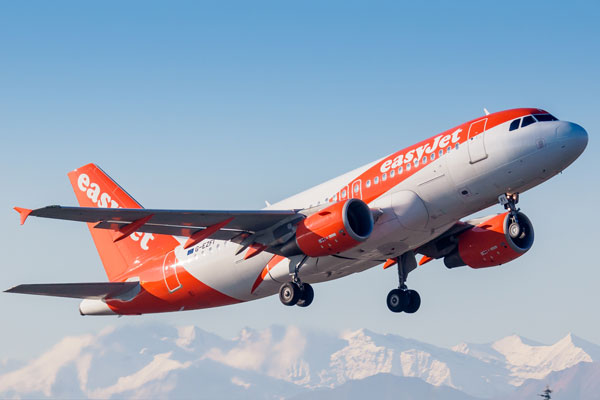A modernisation of Europe’s airspace presents a pivotal chance to significantly curb CO2 emissions from aviation. EasyJet’s recent analysis reveals considerable inefficiencies, suggesting notable environmental and operational benefits from reform.
By leveraging AI technology, easyJet’s study sheds light on the airspace inefficiencies that lead to increased emissions. With the UK’s southeast airspace exemplifying these challenges, the call for streamlined airspace reform is gaining momentum.
EasyJet’s recent study highlights a pressing need to modernise Europe’s airspace, affirming its potential to significantly reduce aviation CO2 emissions by a remarkable 18 million tonnes annually. This development is crucial not only for environmental targets but also for enhancing operational efficiency across the continent. EasyJet’s extensive analysis underscores that, by addressing airspace inefficiencies, the airline itself could see a decrease in emissions by over 10%, translating into shorter flight times and reduced fuel consumption.
Deploying advanced AI technologies, easyJet meticulously evaluated the impact of airspace inefficiencies on emissions, spanning a 12-month period. Results indicated a staggering 10.62% rise in CO2 emissions due to inefficient airspace use, accounting for nearly 664,000 tonnes of excess CO2. The research emphasised how outdated airspace design, especially during the descent phase, exacerbates inefficiencies, particularly around airports. Notably, the UK, Italy, France, Spain, and Switzerland were identified as regions requiring urgent improvements.
During descent, the findings revealed that inefficiencies were particularly prevalent in the UK, Italy, Switzerland, and France. The complex arrival procedures often result in prolonged flight times and increased fuel use, calling for a streamlined redesign.
Adding to this call to action, the UK government’s aviation minister, Mike Kane, supported the findings, noting the positive impacts of a modernised airspace system in reducing delays, aiding decarbonisation, and reducing noise pollution.
EasyJet’s routes from Gatwick to several destinations, including Milan and Palma, were flagged as particularly inefficient, necessitating immediate operational adjustments to cut emissions.
The UK government has shown commitment to supporting airspace modernisation efforts, especially with focus on the busy southeast. This partnership aims to catalyse progress and realise the efficiency gains highlighted in the study.
The study from easyJet serves as a critical reminder of the need for rapid airspace modernisation. This initiative is not only essential for enhancing aviation efficiency but is also a pivotal step towards meaningful CO2 reductions. Coordinated action by policymakers, airlines, and aviation authorities will be key to unlocking the full potential of Europe’s air corridors.
EasyJet’s findings on airspace efficiency present a strong case for urgent reform. Collaborative efforts can lead to substantial CO2 reductions and improved flight operations, rendering benefits for both the environment and the aviation industry.
The commitment to modernise airspace is an essential stride towards reducing aviation’s carbon footprint. Harmonising efforts across Europe will be vital in achieving the environmental goals outlined in easyJet’s comprehensive study.

